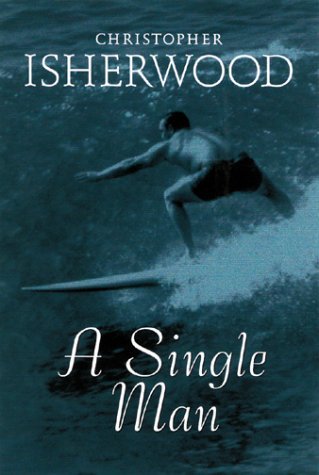What do you think?
Rate this book


186 pages, Paperback
First published January 1, 1964
“The perfect evening...lying down on the couch beside the bookcase and reading himself sleepy...Jim lying opposite him at the other end of the couch, also reading; the two of them absorbed in their books yet so completely aware of each other's presence.”
“Think of two people, living together day after day, year after year, in this small space, standing elbow to elbow cooking at the same small stove, squeezing past each other on the narrow stairs, shaving in front of the same small bathroom mirror, constantly jogging, jostling, bumping against each other’s bodies by mistake or on purpose, sensually, aggressively, awkwardly, impatiently, in rage or in love – think what deep though invisible tracks they must leave, everywhere, behind them!”
“No one ever hates without a cause....”







George, a middle-aged professor, has an ordinary life, but now he must relate to loneliness because of the untimely passing of his partner. Glimmers of light thanks to few daily joys can be seen in his gray days: a female friend who invites him to dinner to distract him, but awkwardily ends up kissing him, ignoring his homosexuality and pretending more than what George can offer her. Or a college student who spends the night at George's house, giving him a few hours of company and a renewed desire, which maybe it is too late to pander to. However, they are only momentary flashes: light and dark.
I admit that I did not know Christopher Isherwood. First-class language, essential and sharp prose.
Vote: 7,5

Una vita ordinaria quella di George, un professore di mezza età che deve relazionarsi con la solitudine a causa della scomparsa prematura del compagno. Spiragli di luce dati da piccole gioie quotidiane si intravedono nelle sue giornate grigie: un amica che lo invita a cena e lo distrae, ma goffamente finisce per baciarlo ignorando la sua omosessualità e pretendendo più di quello che George può offrirle. Oppure uno studente universitario che passa la notte a casa sua, donandogli qualche ora di compagnia e un desiderio riacceso ma che forse è troppo tardi per assecondare. Sono però solo intermittenze, luce e buio.
Ammetto che non conoscevo Christopher Isherwood. Linguaggio sopraffino, prosa essenziale e tagliente.
Voto: 7,5

He pictures the evening he might have spent, snugly at home, fixing the food he has bought, then lying down on the couch beside the bookcase and reading himself slowly sleepy. At first glance, this is an absolutely convincing and charming scene of domestic contentment. Only after a few instances does George notice the omission which makes it meaningless. What is left out of the picture is Jim, lying opposite him at the other end of the couch, also reading; the two of them absorbed in their books yet so completely aware of each other's presence.
I'm like a book you have to read. A book can't read itself to you. It doesn't even know what it's about. I don't know what I'm about.